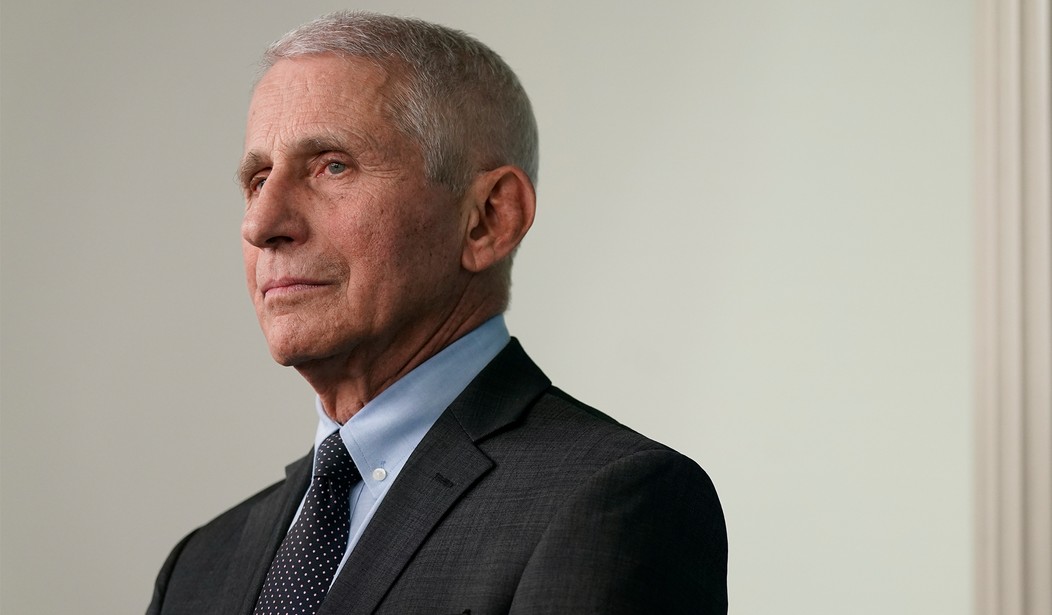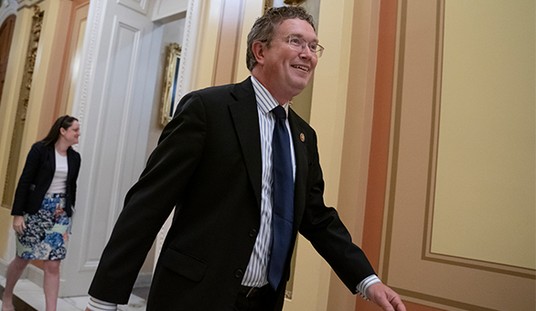Former White House science advisor Anthony Fauci testified behind closed doors before the House Coronavirus Select Subcommittee and, as usual, did his best to muddy the waters.
Did you ever wonder what science the six-foot social distancing rule was based on? Astonishingly, Dr. Fauci is wondering the same thing.
The six-foot rule "just sort of appeared," according to a summary of Fauci's testimony released by the select committee's chairman, Rep. Brad Wenstrup (R–Ohio).
Fauci also grudgingly acknowledged that the lab-leak theory was "not a conspiracy theory," but he continuously claimed he "didn't recall" certain information or "didn't recollect" it.
This was especially true when the committee was trying to get to the bottom of the "Proximal Origin" scientific paper that dismissed the lab-leak theory as a "conspiracy theory." The signature drive to get as many scientists on board as coming out against the lab leak theory was headed up by Peter Daszak of the EcoHealth Alliance, whose close ties to the Chinese government made his motives suspect.
During the last seven hours of the transcribed interview on Tuesday, Fauci testified that the lab-leak hypothesis, which he tried to disprove with the March 2020 “Proximal Origin” scientific paper, was not a conspiracy theory after all. While conceding the possibility that the coronavirus originated from the Wuhan Institute of Virology in China, he did appear to play semantics with the definition of a “lab leak” to defend the biased conclusions of Nature Medicine’s “Proximal Origin” publication.
Fauci's semantic games are very familiar to members looking into the origins of COVID-19. Most famously, Fauci continues to insist that there was no "gain of function" research going on at the Wuhan lab. Technically, he's probably right. But his definition of "gain of function" research comes very close to the standard definition of gain of function, which alters the DNA of a virus to change its properties. It's dishonest, and everyone but Fauci admits it.
“After two days of testimony and 14 hours of questioning, many things became evident. During his interview today, Dr. Fauci claimed that the policies and mandates he promoted may unfortunately increase vaccine hesitancy for years to come," Wenstrup said. "He testified that the lab-leak hypothesis — which was often suppressed — was, in fact, not a conspiracy theory. Further, the social distancing recommendations forced on Americans ‘sort of just appeared’ and were likely not based on scientific data."
"Dr. Fauci’s transcribed interview revealed systemic failures in our public health system and shed light on serious procedural concerns with our public health authority," he added. "It is clear that dissenting opinions were often not considered or suppressed completely. Should a future pandemic arise, America’s response must be guided by scientific facts and conclusive data."
Across his two days of testimony, Fauci engaged in "semantics" about the definitions of lab leaks and gain-of-function research—which involves engineering viruses to make them more deadly—to "cover up" his suppression of the lab leak hypothesis and improperly defended his past statements that NIH didn't fund gain-of-function research in Wuhan, China, said Wenstrup.
Sen. Rand Paul (R–Ky.) has called for Fauci to be criminally prosecuted for lying to Congress about NIH's funding of gain-of-function research.
If you think that this will change the opinion of Fauci on the left, you're sadly mistaken. "Saint Anthony's" narrative is set in stone, and no matter how many spectacular errors he made or how many fabrications about his role in the pandemic he fashioned, Fauci will remain their hero. Facing the prospect of having to admit how wrong he was, Fauci and his defenders will bury anyone who says otherwise.










Join the conversation as a VIP Member